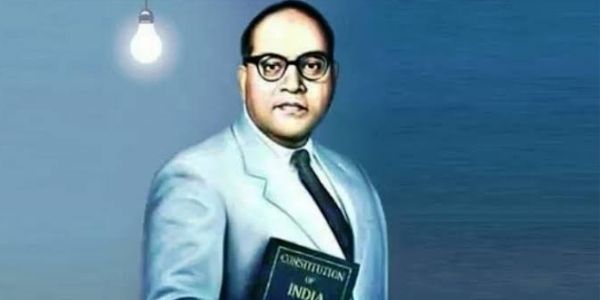We all know about the Constitution of India. But, what is Constitutional Morality? Further, why one needs to know about it. We have added all information related to Constitutional Morality in India. Besides, why Constitutional Morality UPSC is essential to understand for the UPSC IAS exam, further, as a part of the UPSC exam syllabus, one must be aware of this topic. Therefore, this article will help you give all information on Constitutional Morality, and it will help you with the IAS exam preparations. Further, try to note down all important points while reading the article as there is a lot of competition for the IAS exam. Every year there are students and working professionals applying for the exam. But, in the end, there are only a few who can clear the exam. Let us now learn a new concept that is part of your IAS exam study materials.

Introduction
To begin with, Constitutional Morality is a constitutional scheme, particularly in the Preamble, Part III and Part IV. Further, it states that the democratic government should reinstate key democratic ideals such as Liberty, Equality, Justice, and Fraternity and govern according to the Rule of Law. The concept of Constitutional Morality means being faithful to constitutional values. Further, Dr. B.R. Ambedkar, in one of the Constitutional Assembly Debates explaining the idea of Constitutional Morality quoted Greek Historian George Grote and said:
According to him, all forms of the Constitution, enforcing obedience to authority and acting under and within these forms, yet combined with the habit of open speech, of action subject. The upper mentioned observation of Dr. B.R. Ambedkar regarding the concept of constitutional Morality came in the Constituent Assemble Debate for inclusion of administration details in the Indian Constitution. Further, get all the other important information here. Know More.
This article will give you all information and other essential details to help you with your exam preparations.
What is Constitutional Morality
- In the first place, the Constitution was made possible by a constitutional morality that was liberal at its core. Further, it implies that the government must restore Liberty, Equality, Justice, and Fraternity.
- It has regarded as the highest form of reverence for the constitution.
- Further, it also provides a principled framework for carrying out the work of governance. Besides, it specifies the norms that institutions must follow in order to survive, as well as the behavior.
- Later, it holds the governing institutions and their representatives accountable.

Below are the rights that emanate from the Constitution.
- Rule of law
- Individual liberty
- Right to equality
- Freedom of choice and expression
- Social justice
- Due process of law
- Procedure established by law
Further, society will not be static and will changes that occur lead to new scenarios, and thus, the law and the constitutional have to keep up with the same. For example, the Supreme Court provided an elaborate mechanism to declare the rights of people who do not obey a particular gender, thus securing their life, dignity, liberty, and identity.
Scope Constitutional Morality in India
However, the Supreme Court has not clearly said the extent and scope of constitutional Morality, leaving it open to subjective interpretations by individual judges. Further, it is another chapter in the judiciary’s quest to usurp Parliament’s powers.
Constitutionalism
The democratic values in the Constitution as the foundation of government and governance. Further, all must have access to liberty, equality, and justice. Besides, our government is mannered by the rule of law and the separation of powers and by the election of a specific term of government.
Rule of Law
Further, Equality before the law essentially means that all people should be treated equally, regardless of whether they are poor or rich, male or female, upper or lower caste. The state is governed by the rule of law, not by a person’s will. Further, in the eyes of the law, all are equal, and one is privileged or more.
Importance
We all want to know why Constitutional Morality is essential? But, first, let us understand why it is necessary.
Constitutional Morality is a governing ideal that emphasizes the importance of preserving people’s trust in democratic institutions. Further, it also ensures the establishment of the rule of law. Besides, it enables people to involve and coordinate to study constitutional aspirations. It also influences and changes prevailing social Morality through laws and forms. Again, it recognizes society’s plurality and diversity.
Important Supreme Court Judgements
- In the first place, it is about the religious freedom, gender equality, and the right of women to worship.
- Further, the Supreme Court limited Parliament’s ability to violate the Constitution’s Basic Structure in the Kesavananda Bharati case.
- The Supreme Court ruled in the Naz Foundation case that only Constitutional Morality, not Public Morality, should prevail.

How one can uphold Constitutional Morality ?
- In the first place, only believing in constitutional values is not enough. But, it is about educating the public regarding the values to uphold the ideas. It can be done by conducting programs that will help people understand the importance in schools and other institutions.
- Further, by committing to the values like constitutional supremacy, the rule of law, liberty, equality, parliamentary form of government, self-restraint, intolerance for corruption, etc.
- By raising your voice against the non-constitutional practices. It is important for one to speak up against it. Further, by using it as an aid in making choices because it can give another set of clues while searching for constitutional meaning.
- By letting constitutional morality guide the Court’s decision instead of popular morality, while interpreting the constitution, constitutional morality is being upheld.
Useful Tips for the IAS Exam Preparations
Further, to get the best results in the UPSC exam, there is a need to follow up with some valuable tips. Before that, get all information related to the IAS exam. We have added all details that will help you with the exam preparations. Read More. Further, before applying for the exam, one must also go through the official website and get all information. Then, one must go through the last year’s question papers as they will help you know about the question pattern, syllabus, marks, and trending topics. One must also prepare a proper timetable and give time for all subjects, including revision as revision is one of the essential things in any exam. One also has the option of studying on their own and can go for classes. But, one should work hard and put in all efforts.
Besides, one must also answer writing practice. If you keep on studying it won’t help you, but if you write, you will understand your writing speed and how to include essential points with a few words. Further, try to give mock tests that will help you to know your skills. Many platforms offer test series and mock tests. Later, also know the best books for all subjects and try to study from them. One cannot waste their time studying from the wrong books that will not help you get proper knowledge.
Further, there are three stages in the IAS exam. Prelims, the main exam, and the interview round. All students must clear all stages of the exam to get selected.
Conclusion – Constitutional Morality in India
In summary, we have added all details related to the Constitutional Morality for the UPSC exam and is why it is essential for the UPSC exam. We have added everything that is important as a part of the IAS exam. Further, to know about a question you can refer to the last year’s papers. Besides, Constitutional Morality in India is a concept that should be instilled in the minds of all responsible citizens. It is essential for all of us to raise voices against all actions that are non-constitutional in nature. As we have mentioned earlier, it is also essential for one to conduct programs that will help to know the values of the same. Further, get all other exam study materials here. It will help you with the IAS exam and this article Constitutional Morality UPSC exam.

FAQs
It is given by the Grote.
It means adherence to the core principles of constitutional democracy.
As a part of the IAS main exam and for the GS papers, one must know all the essential details to get the best results in the exam.
Editor’s Note | Constitutional Morality
Get all information related to the Constitutional Morality in India and for the UPSC exam. It is one of the vital topics for the IAS exam. Later, we have added all links that will help you get information about the exam. In our earlier articles, we provided information about the exam study materials. Also, we have added some important tips that will help you get the best scores. Also, one must go through the official site to help you get all the details related to the IAS exam. Further, this exam is all about hard work and effort. If you plan properly, you will be able to achieve your goals. We wish you good luck with your exams. With the right plan and hard work it will be good.






